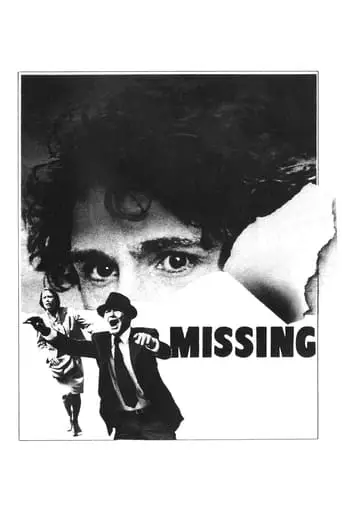
Missing (1982) Watch Online Free
Based on the real-life experiences of Ed Horman. A conservative American businessman travels to Chile to investigate the sudden disappearance of his son after a military takeover. Accompanied by his son’s wife he uncovers a trail of cover-ups that implicate the US State department which supports the dictatorship.
Missing (1982), directed by Costa-Gavras, is a gripping political thriller based on the true story of Charles Horman, a young American journalist who disappeared during the 1973 military coup in Chile. The film explores the emotional and political turmoil surrounding his parents’ search for him in a foreign country where the U.S. government is less than helpful. Through the eyes of Charles’s wife, Beth (played by Sissy Spacek), and his father, Ed (Jack Lemmon), Missing paints a disturbing picture of governmental indifference, political corruption, and personal tragedy.
In 1973, Charles Horman (John Shea) is in Santiago, Chile, reporting on the political unrest that is culminating in the coup that ousts President Salvador Allende. After the coup succeeds, Charles disappears without a trace. His wife, Beth, and father, Ed, arrive in Chile to search for him. They encounter indifference and bureaucratic obstruction from both the U.S. and Chilean governments. The film builds on their frustration as they unravel a web of political conspiracy, revealing the possible role of the U.S. government in Charles’s disappearance. Ultimately, the search exposes the chilling consequences of the U.S.’s involvement in the coup and their disregard for the lives of its own citizens caught in the crossfire.
After watching Missing, viewers are likely to experience a mix of anger, sorrow, and disbelief at the political realities depicted. The film’s portrayal of bureaucratic and governmental failure will evoke frustration, especially as the Hormans’ desperate search goes unheeded. There will also be a lingering sense of empathy for the characters, particularly for Beth and Ed, whose emotional journey is central to the film. Additionally, the shocking revelation of the U.S. government’s complicity in the coup may leave viewers with a lasting sense of unease about the lengths to which governments go to protect their interests. Ultimately, Missing leaves a powerful impression, not just as a political thriller but as a poignant human drama that asks viewers to confront the darker side of international politics.
In sum, Missing is a film that resonates on multiple levels, offering both a historical perspective on a turbulent time and a deeply personal narrative of loss and resilience. It will leave you thinking about the intersection of politics and human rights long after the credits roll
